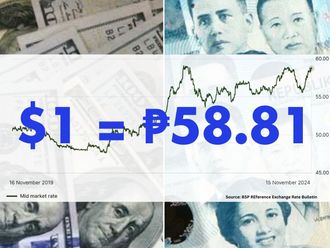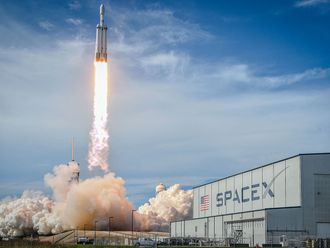Dubai: Global economic recovery remains ‘fragile’, the International Monetary Fund (IMF), said in its annual report released late on Thursday, as its financial year 2012 drew to a close.
“Activity in the United States strengthened, and most emerging market economies and low-income countries were continuing to experience solid growth. However, recurring difficulties in the euro area led to significant market stress and volatility at times and continued to pose a key source of vulnerability to the world economy. Growth in most advanced economies was expected to remain weak, held back by concerns about public deficits and debt, the ongoing process of financial deleveraging, and high unemployment,” IMF said in its annual report, a copy of which was obtained by Gulf News.
During this year, IMF members boosted its financial resources by $430 billion.
“The past year was a deeply challenging one for many IMF members and for the Fund itself. The global financial crisis continued to flare up across the world, especially in the euro area,” Christian Lagarde, IMF Managing Director, said. “We saw many false hopes and too many cases of two steps forward and one step back. The result is a continued lack of confidence, continued financial market stress, and a continued weak recovery. Meanwhile, unemployment remains unacceptably high in too many regions and the social fabric is becoming increasingly stretched.”
Financial stability
Clearly, it is more important than ever to restore global economic and financial stability and put the global economy on a course of sustained growth, she stressed.
The Executive Board also endorsed the use of a portion of the windfall profits from IMF gold sales to help raise additional funds to subsidise the Poverty Reduction and Growth Trust’s concessional financing. she said.
With risks firmly to the downside, policymakers faced a challenging balancing act as FY2012 drew to a close, the report noted. In advanced economies, governments had to address fiscal risks and start to put public debt on a firm downward trajectory without killing growth in the near term.
WTO Secretary General Pascal Lamy said, “The persistence of widespread poverty in many areas of the world and the growing inequalities in most of our societies are also a stark reminder that the benefits of the global economy have not accrued to everyone in an equal manner. Economic growth is a necessary but not sufficient tool for poverty alleviation. Skewed patterns of income distribution — both at international level and within a country — mean that economic growth does not often trickle down to the most vulnerable in our societies and that the poor are often denied access to the opportunities of trade opening.”












